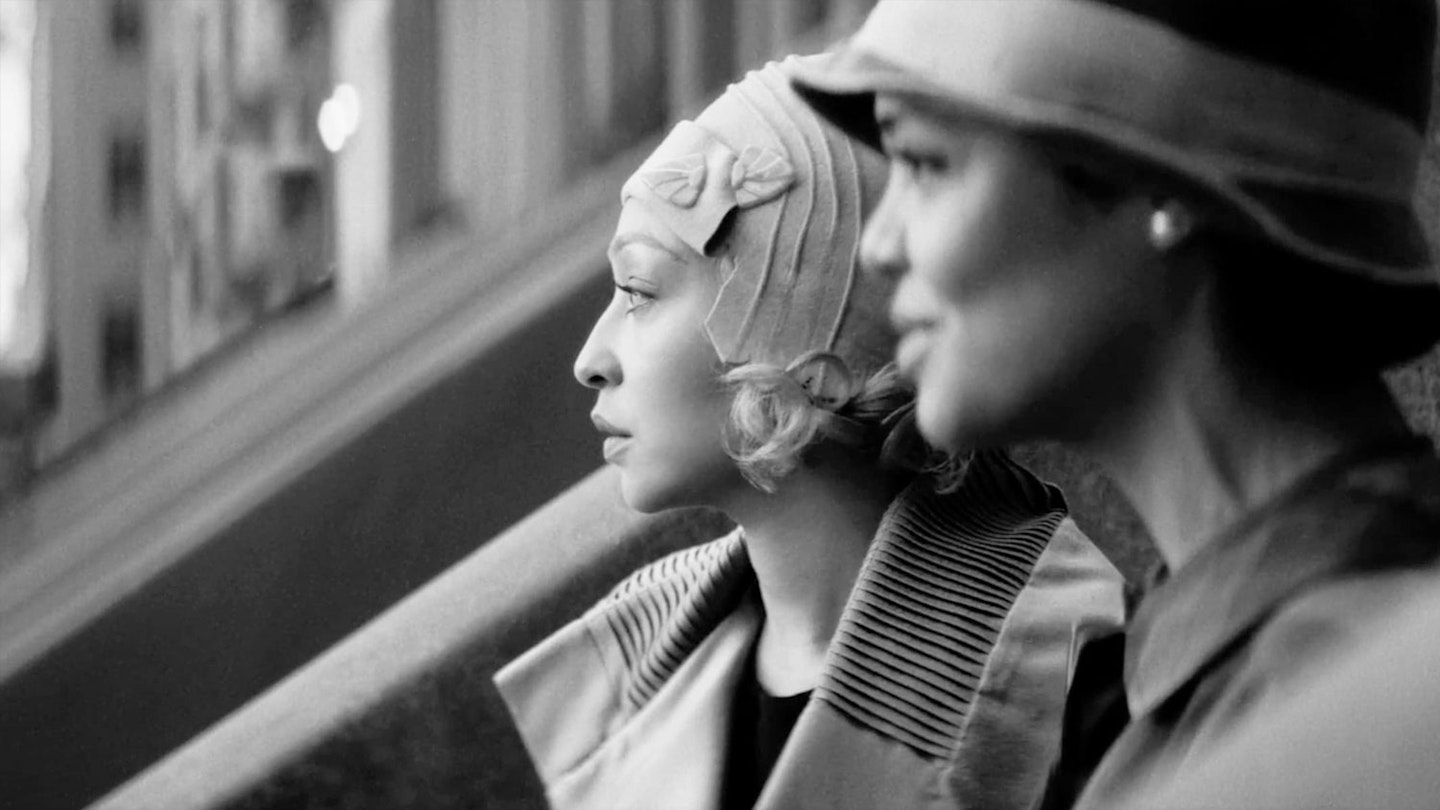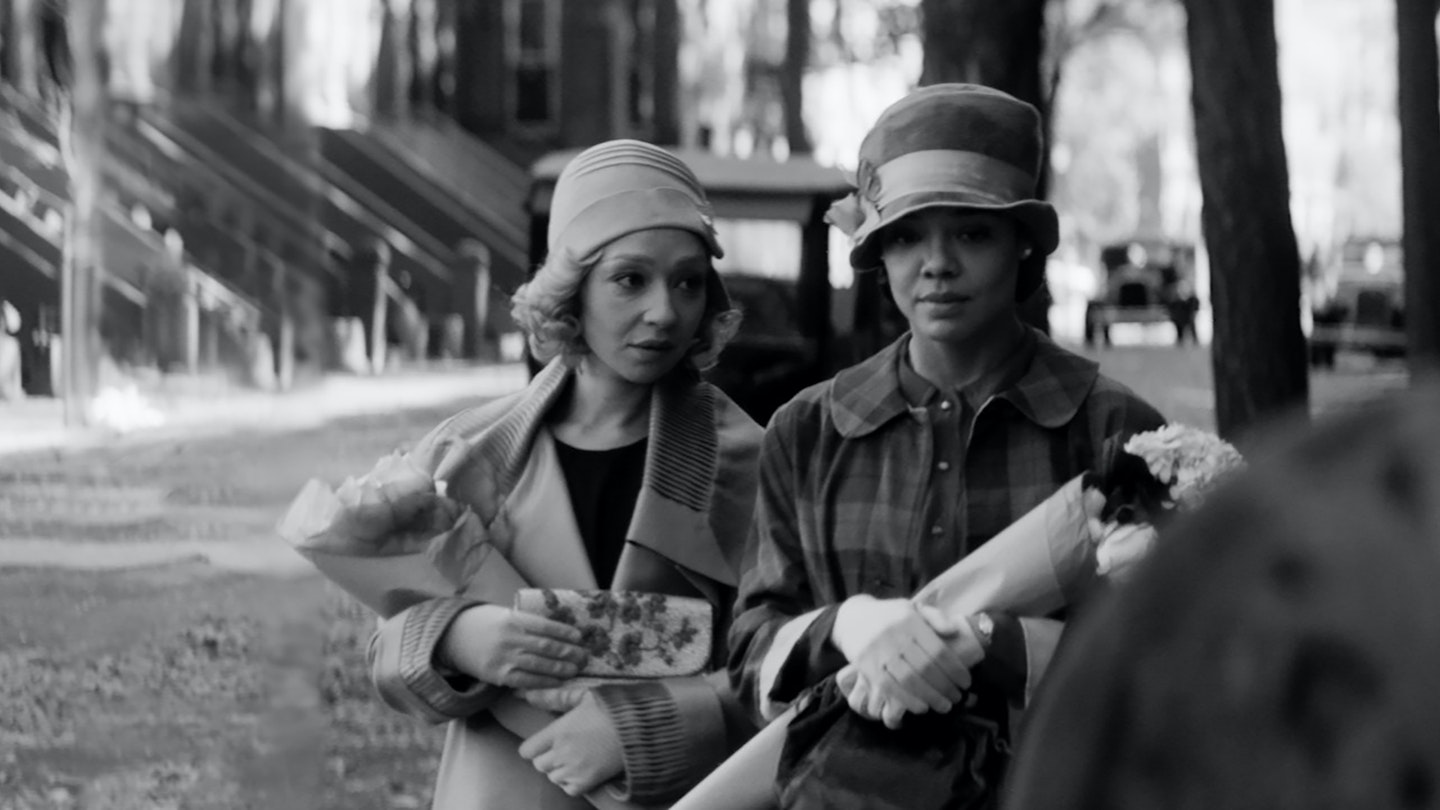Rebecca Hall has long been an actor of poise and grace, and she takes those traits behind the camera for her striking directorial debut. Hall has also written this adaptation of Nella Larsen’s 1929 novella and her instinct for restraint, together with her personal connection to the material — her grandfather was Black, but passed for white for most of his life — is what gives this compelling story so much of its power.
She’s helped by commanding performances from Tessa Thompson and Ruth Negga, who play estranged friends Irene and Clare. A chance reacquaintance leads to the discovery that Clare lives her life as a white woman; her lighter skin enabling her to ‘pass’ for Caucasian. Irene (Tessa Thompson), who is also biracial but lives as African American, is at first wary of Clare’s life choices — and utterly repulsed by her racist husband John (Alexander Skarsgård). Yet it’s not long before the pair rekindle their bond; one which will irrevocably change both their lives.

For a film explicitly concerned with issues of race, Passing largely avoids the temptation to soapbox or overstate — although there are some shockingly overt moments. The film opens with two white women referring to a black “piccaninny” doll; later, Irene’s husband Brian (André Holland) talks to their young children about lynchings. And while Skarsgård attempts to imbue John with some depth, his limited screen-time means he is nothing more than a blunt-edged cypher for racist and misogynistic attitudes.
The best moments of the film are when the drama, emotional and political, plays out in the spaces between these more explicit moments. Irene hides behind a wide-brimmed hat to take tea in an upmarket hotel, and expresses guilt about employing a darker-skinned maid. She and Clare convey secrets and longings in every look, their friendship brimming with erotic undertones. The irrepressible Clare is perhaps not the only one passing for something she’s not.
Realisation dawns that Clare’s ‘passing’ brings more imprisonment than privilege
Choosing to film in monochrome could have felt gimmicky and yet, shooting in traditional (and claustrophobic) 4:3 aspect ratio, DP Edu Grau brings such texture that nothing is ever truly black and white. The camera paints in light — a sunbeam dances on a leaf, a bright tea room overwhelms — and contrasts. Thompson is often alone in the frame, Irene’s vivid clothing set against the dark wood of her Harlem home. The changing seasons are marked by the evolving profile of a tree. It’s all underscored by a jazz soundtrack which draws on both gentle piano and urgent saxophone.
A crack forms over Irene and Brian’s marital bed, the chime of a grandfather clock routinely breaks through Irene’s reveries, and realisation dawns that Clare’s ‘passing’ brings more imprisonment than privilege. Events build to a climax that is truly shocking, but somehow inevitable. And, despite leaving so many questions unanswered — not least about how much anyone is defined by race, gender or sexuality — this is profound, satisfying filmmaking.

